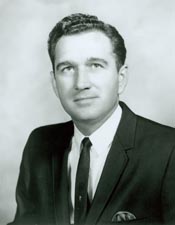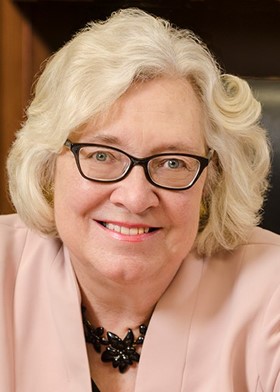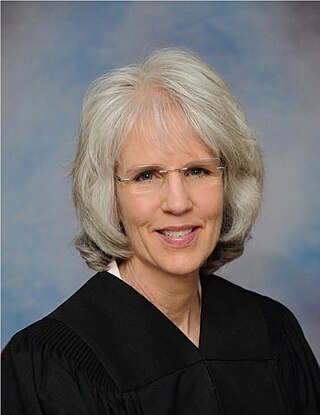Related Research Articles
A pardon is a government decision to allow a person to be relieved of some or all of the legal consequences resulting from a criminal conviction. A pardon may be granted before or after conviction for the crime, depending on the laws of the jurisdiction.

Andrew Lamar Alexander Jr. is an American politician and attorney who served as a United States senator from Tennessee from 2003 to 2021. A member of the Republican Party, he also was the 45th governor of Tennessee from 1979 to 1987 and the 5th United States secretary of education from 1991 to 1993, where he helped with the implementation of Education 2000.

Freddie Dalton Thompson was an American politician, attorney, lobbyist, columnist, actor, and radio personality. A member of the Republican Party, he served as a United States Senator from Tennessee from 1994 to 2003. He was an unsuccessful candidate in the Republican Party presidential primaries for the 2008 United States presidential election.
A parole board is a panel of people who decide whether an offender should be released from prison on parole after serving at least a minimum portion of their sentence as prescribed by the sentencing judge. Parole boards are used in many jurisdictions, including the United Kingdom, the United States, and New Zealand. A related concept is the board of pardons and paroles, which may deal with pardons and commutations as well as paroles.

Leonard Ray Blanton was an American businessman and politician who served as the 44th governor of Tennessee from 1975 to 1979. He also served three terms in the U.S. House of Representatives, from 1967 to 1973. Though he initiated a number of government reforms and was instrumental in bringing foreign investment to Tennessee, his term as governor was marred by scandal over the selling of pardons and liquor licenses.

Miriam Amanda "Ma" Ferguson was an American politician who served two non-consecutive terms as the governor of Texas: from 1925 to 1927, and from 1933 to 1935. She was the first female governor of Texas, and the second woman elected to the governorship of any U.S. state to assume office, after Nellie Tayloe Ross of Wyoming.

Julia Smith Gibbons is a senior United States circuit judge of the United States Court of Appeals for the Sixth Circuit.
Janice Marie Holder is an American judge who served as a circuit court judge for Tennessee's Division II Circuit Court in the 30th district, served as the third woman justice on the Tennessee Supreme Court from 1996 until 2014, and was the first female Chief Justice of Tennessee on the Tennessee Supreme Court from 2008 until her retirement in 2014.

Cornelia Anne Clark was an American attorney and jurist who served as a justice of the Tennessee Supreme Court from 2005 until her death in 2021.

Marie is a 1985 American biographical film starring Sissy Spacek as Marie Ragghianti, former head of the Tennessee Board of Pardons and Paroles, who was removed from office in 1977 after refusing to release prisoners on whose behalf bribes had been paid to aides to Governor Ray Blanton. Ragghianti, a single mother and political appointee, was hounded for refusal to cooperate with the culture of corruption with which she found herself confronted. Two of Blanton's aides faced prosecution for their roles in the scandal. The film was based on the book Marie: A True Story by Peter Maas.
The Oklahoma Pardon and Parole Board is the parole board of the state of Oklahoma. The board was created by an amendment to the Oklahoma Constitution in 1944. The Board has the authority to empower the Governor of Oklahoma to grant pardons, paroles, and commutations to people convicted of offenses against the state of Oklahoma.
In the United States, life imprisonment is the most severe punishment provided by law in states with no valid capital punishment statute, and second-most in those with a valid statute. According to a 2013 study, 1 of every 2 000 inhabitants of the U.S. were imprisoned for life as of 2012.
Justin Potter Wilson is an American lawyer and Republican politician who was the 34th Comptroller of the Treasury of Tennessee. He has been Tennessee deputy governor, a federal judicial nominee to the U.S. Court of Appeals for the Sixth Circuit, and an adjunct professor at Vanderbilt University Law School.
Lloyd Edgar Ohlin was an American sociologist and criminologist who taught at Harvard Law School, Columbia University, and the University of Chicago. He studied the causes and effects of crime and punishment, especially as it related to youthful offenders and delinquents.

Martha Craig "Cissy" Daughtrey is a Senior United States circuit judge of the United States Court of Appeals for the Sixth Circuit.

Kathy Jane Branstetter Stranch is a United States circuit judge of the United States Court of Appeals for the Sixth Circuit.

John Lawrence Seigenthaler was an American journalist, writer, and political figure. He was known as a prominent defender of First Amendment rights.
The Tennessee Board of Parole, formerly known as the Tennessee Board of Pardons and Paroles and Tennessee Board of Probation and Parole, is the state parole board in Tennessee.
Lidia Shenade Stiglich is an American attorney and jurist serving as a justice of the Supreme Court of Nevada since 2016. She was appointed by Governor Brian Sandoval on November 10, 2016.

Alice Marie Johnson is an American criminal justice reform advocate and former federal prisoner. She was convicted in 1996 for her involvement in a Memphis cocaine trafficking organization and sentenced to life imprisonment. In June 2018, after serving 21 years in prison, she was released from the Federal Correctional Institution, Aliceville, after President Donald Trump granted her clemency, thereby commuting her sentence, effective immediately.
References
- 1 2 3 4 5 6 "History of The Federal Parole System", Peter B. Hoffman, United States Parole Commission website. Retrieved January 23, 2008.
- 1 2 "Film: Spacek in Marie", by Janet Maslin. September 27, 1985, New York Times . Retrieved January 23, 2008.
- 1 2 3 "Pardoner's Tale", book review of Marie: A True Story, by J. D. Reed, June 6, 1983, Time Magazine . Retrieved January 23, 2008.